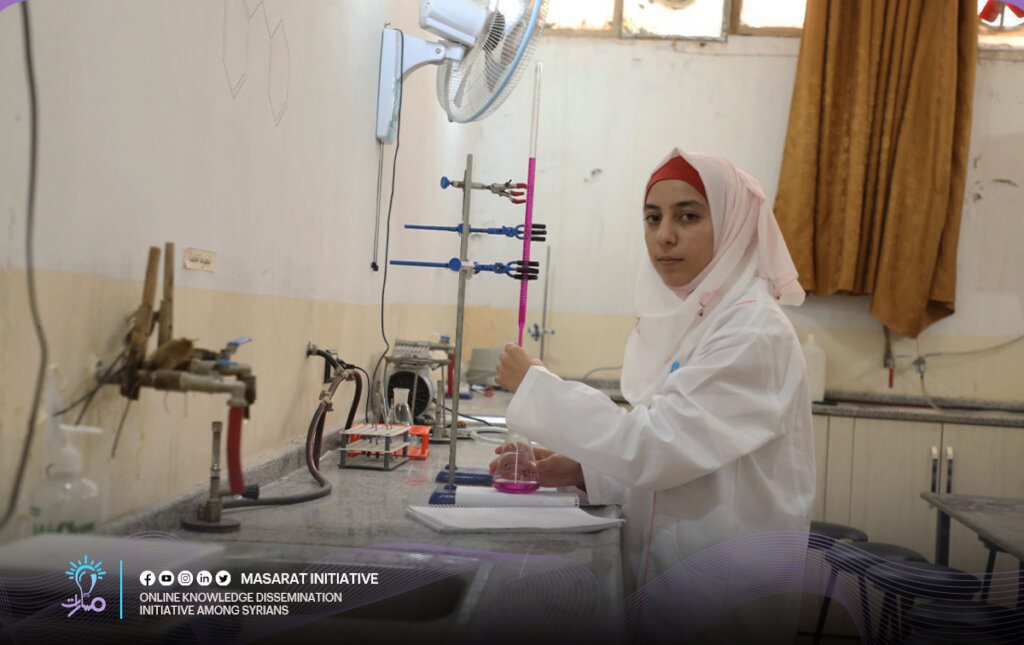Zakat, as defined in Islamic law, is a religious obligation imposed on growing wealth that exceeds the needs of a Muslim. God has given the poor and needy a right to this wealth, so that the wealth owner feels responsible for their fellow Muslims and provides for them.
Zakat is a means of purifying and blessing one’s wealth, given by Muslims to seek God’s pleasure. It has specific rules in Islamic jurisprudence, and thus, this article will discuss Zakat on trade and commercial projects due to its importance in the financial market.
The significance of paying Zakat on various trade goods, including gold, real estate, and livestock, lies in achieving the principle of balance within the Islamic society.
There are many ways to pay and distribute Zakat to its rightful beneficiaries, supporting communities that struggle with life’s challenges and securing essentials like education, health, and food. Among these is the Masarat Initiative, which provides free education and offers educational sponsorships for orphans in Syria.
Zakat on Projects and Commercial Shops and When It Becomes Obligatory
Zakat on Clothing and Gold Trade
Paying Zakat on clothing trade depends on the trade capital if it reaches the value of 85 grams of pure gold. If the capital reaches the Nisab, the goods for trade must be valued at their selling price, debts expected to be collected are added to the Zakat, and after deducting the trader’s debts from the capital, if the remaining amount reaches the Nisab, 2.5% Zakat must be paid.
For gold prepared for trade, Zakat is due based on trade goods. Zakat is due on the value of the gold if it reaches the Nisab, and 2.5% must be paid after a lunar year.
Zakat Al-mal Invested in Trade
Zakat Al-mal earned from trade is obligatory on the capital if it reaches the Nisab, and also on the profit, as the profit is considered part of the capital. Therefore, Zakat of 2.5% must be paid on both the capital and its profit.
Zakat on Livestock Prepared for Trade
Zakat on livestock prepared for trade is similar to Zakat on trade goods and requires certain conditions:
- The market value of the livestock must reach the Nisab, either by itself or combined with other cash assets.
- A lunar year must pass on the ownership of the livestock or the money used to buy them. If the livestock’s market value reaches the Nisab and completes the year, 2.5% Zakat must be paid.
Zakat on Cars and Land Prepared for Trade
Zakat on cars intended for trade is obligatory as they are considered trade goods. Zakat is due when they reach the Nisab, either by themselves or combined with other goods or cash, and after completing the year. The car’s market value at the end of the year must be assessed, and 2.5% Zakat paid.
Zakat on land intended for trade is obligatory. The original intention of purchase for trade means it should be valued at market price each year, and 2.5% Zakat paid.
Zakat on Rented Commercial Properties or Capital on Loan
Zakat on rented commercial properties is not due on the property itself but on the income from it. If the profit reaches the Nisab and completes a year, Zakat must be paid.
Most scholars agree that debt prevents the obligation of Zakat on internal assets like cash, trade goods, silver, and gold. If the value of the trade goods after deducting debt reaches the Nisab, Zakat is due after a lunar year.
What is Zakat on Unsold or Slow-Moving Goods?
Zakat on unsold or slow-moving goods requires that the intention be shifted from trade to personal ownership. If the intention to trade remains, many scholars suggest that these goods be valued at the end of each year and Zakat paid. Some Maliki scholars suggest that Zakat is only due on goods that are actually sold.
How to Calculate Zakat on Trade Wealth and Commercial Shops
Zakat on commercial shops based on purchased and sold goods requires that Zakat be paid on the value of these goods after a year, provided they reach the Nisab. In this case, 2.5% Zakat must be paid. If the goods do not reach the Nisab, no Zakat is due.
Goods should be valued at market price, including collectable debts, and deducting owed debts. The condition for deducting debt is that the Zakat payer does not have other non-Zakatable assets sufficient to cover the debt. If so, the debt is not deducted from the Zakat wealth.
How to Pay Zakat on Trade Wealth
The Zakat payer must evaluate their trade goods at the end of the year when Zakat becomes due. They can include other Zakat-eligible assets they own and value these goods at market prices.
If the total Zakatable assets reach the Nisab, Zakat of 2.5% of the total value must be paid. Zakat should be paid in cash, not in trade goods.
Zakat should be given to the rightful recipients mentioned in the Quran: “The alms are only for the poor and the needy, and those who collect them, and those whose hearts are to be reconciled, and to free the captives and the debtors, and for the cause of Allah, and for the wayfarer; a duty imposed by Allah. Allah is Knower, Wise” (Quran 9:60).
Among the categories mentioned, “for the cause of Allah” includes students, highlighting the importance of knowledge and education in Islam. The Prophet (PBUH) emphasized this in several sayings, such as “Whoever takes a path upon which to obtain knowledge, Allah makes the path to Paradise easy for him.”
Therefore, paying Zakat through the Masarat Initiative has a significant impact as it is considered ongoing charity for students. This Zakat helps improve the lives of thousands of children, including those who have dropped out of education, improving their current conditions and future prospects.
Masarat for Education and Vocational Training in Syria
Refugee and displaced communities live under harsh conditions, where accessing quality education is a significant challenge. The lack of basic resources stands as a barrier to realizing their educational dreams, but with appropriate support, this reality can change.
By donating your Zakat, you contribute to igniting the light of knowledge in the hearts of refugee children, orphans, and those with special needs. This contribution is a gesture of hope that opens the doors of the future for these children.
Your donation today, through your Zakat, is a continuous charity that provides comprehensive knowledge services aiming to empower individuals by providing educational tools from school education, student activities, academic advising, vocational training, psychological support, and technical support.
Your donation today is an opportunity to transfer knowledge and education to those who are in dire need of it.










